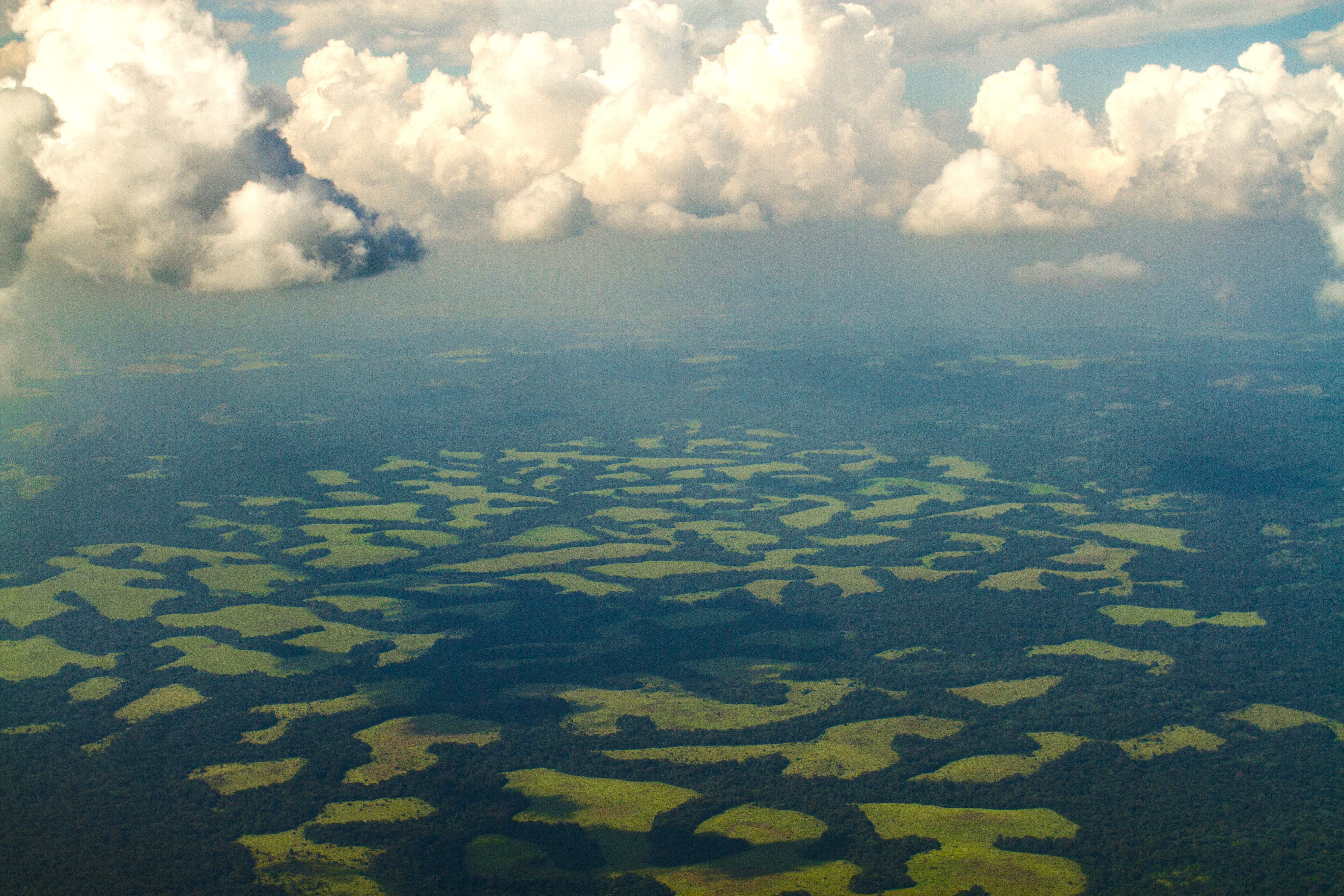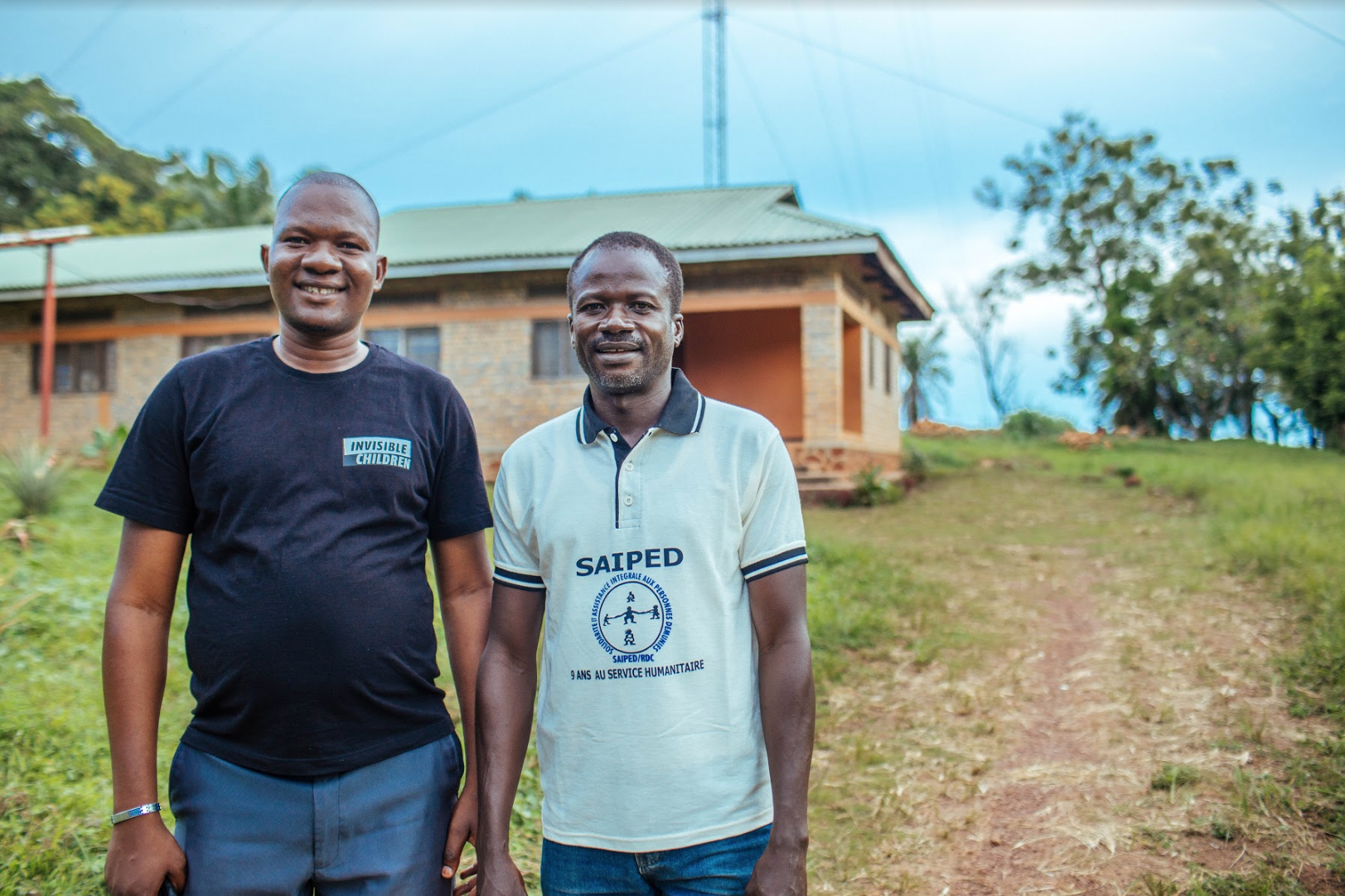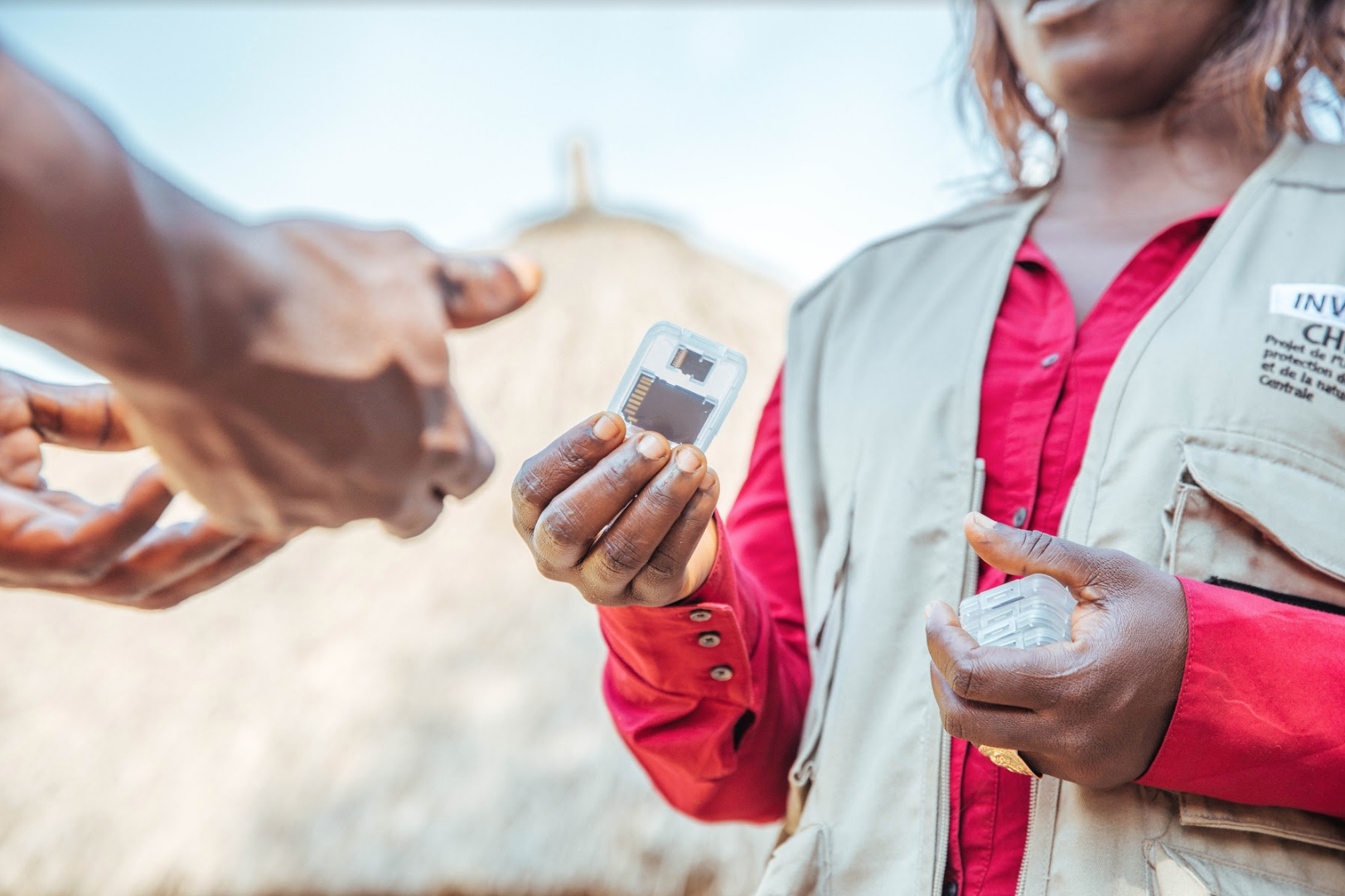The areas of central Africa where we work are some of the most naturally magnificent places on earth. Here, in some of the most remote regions on the planet, people rely on their local environment to sustain them. But, as is true around the world, the exploitation of wildlife and the environment puts these local communities at risk.

Because local communities rely so heavily on the natural world around them to survive, it’s important that those resources are well managed and protected. But even beyond that, unprotected wildlife and other resources can often be used by armed groups to fuel violence. Poaching and resource exploitation often attract and fund armed groups in this region.
So, as part of the USAID-funded Community Resilience in Central Africa (CRCA) Activity, we are engaging local communities in efforts to protect the natural world they rely on. One of the ways we’re doing that is by working with conservation experts and local partners like our friend Dieubéni from the Congolese organization SAIPED to raise awareness about conservation issues throughout the region.

Dieubéni is passionate about carrying on the local ancestral value of conservation and knows that it is a crucial part of helping local communities thrive. As part of the USAID-funded CRCA project, Dieubéni spends his days creating radio messages about conservation and other topics related to preventing violence. He is recording and producing radio messages that cover everything from the laws governing local national parks, to recycling, to the ways in which humans benefit from local wildlife.
While these radio messages can reach a wide audience, many communities are so remote that even radio can’t reach them. Because they are so isolated without access to many services, these communities can often be some of the most vulnerable. So, we’re reaching these communities by using micro SD cards, which many people in the region are already using to share music.

Today, we’re uploading music and Dieubéni’s messages to hundreds of micro SD cards and passing them out in communities that might not have access to the radio stations broadcasting those messages.
While we raise awareness, we’re also equipping local communities to take action to protect their environment and prevent violence by equipping them with the tools to report poaching and illegal wildlife trafficking and by working with them to create action plans that include strategies for protecting and conserving their local environment.
Equipped with information as well as the tools to share and use it Central African communities will be able to take an active role in protecting themselves and their environment.
CLICK HERE TO OUR WORK TO HELP CENTRAL AFRICAN FAMILIES THRIVE TOGETHER WITH THE WORLD AROUND THEM
Programs described in this blog are made possible with the support of the American People through the United States Agency for International Development (USAID). The contents of this post are the sole responsibility of Invisible Children and do not necessarily reflect the views of USAID or the United States Government.

Think people should hear about this?